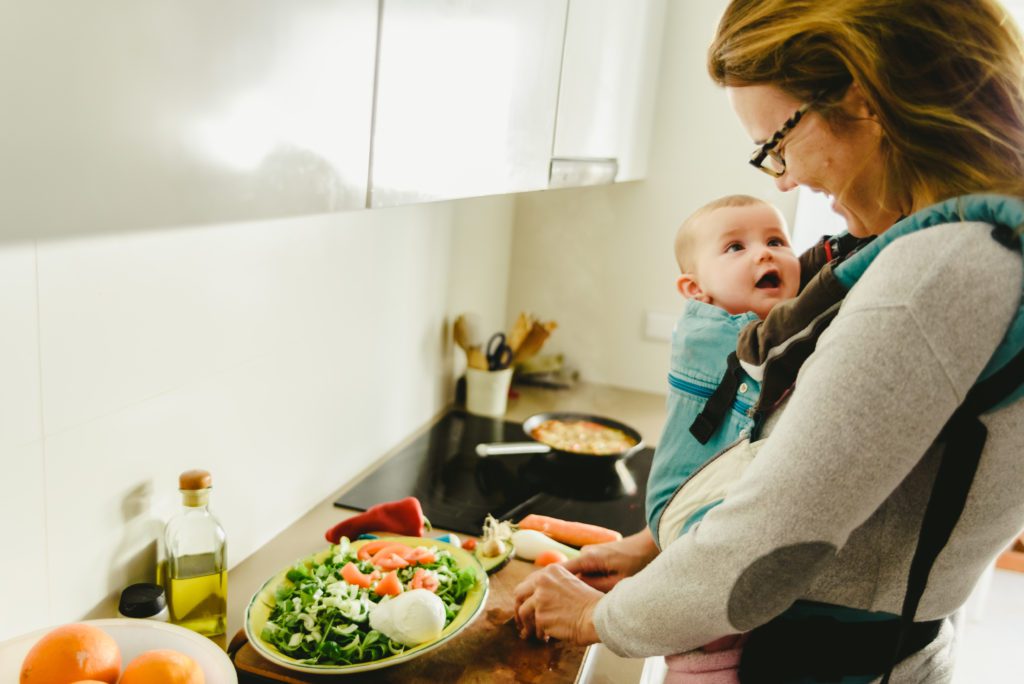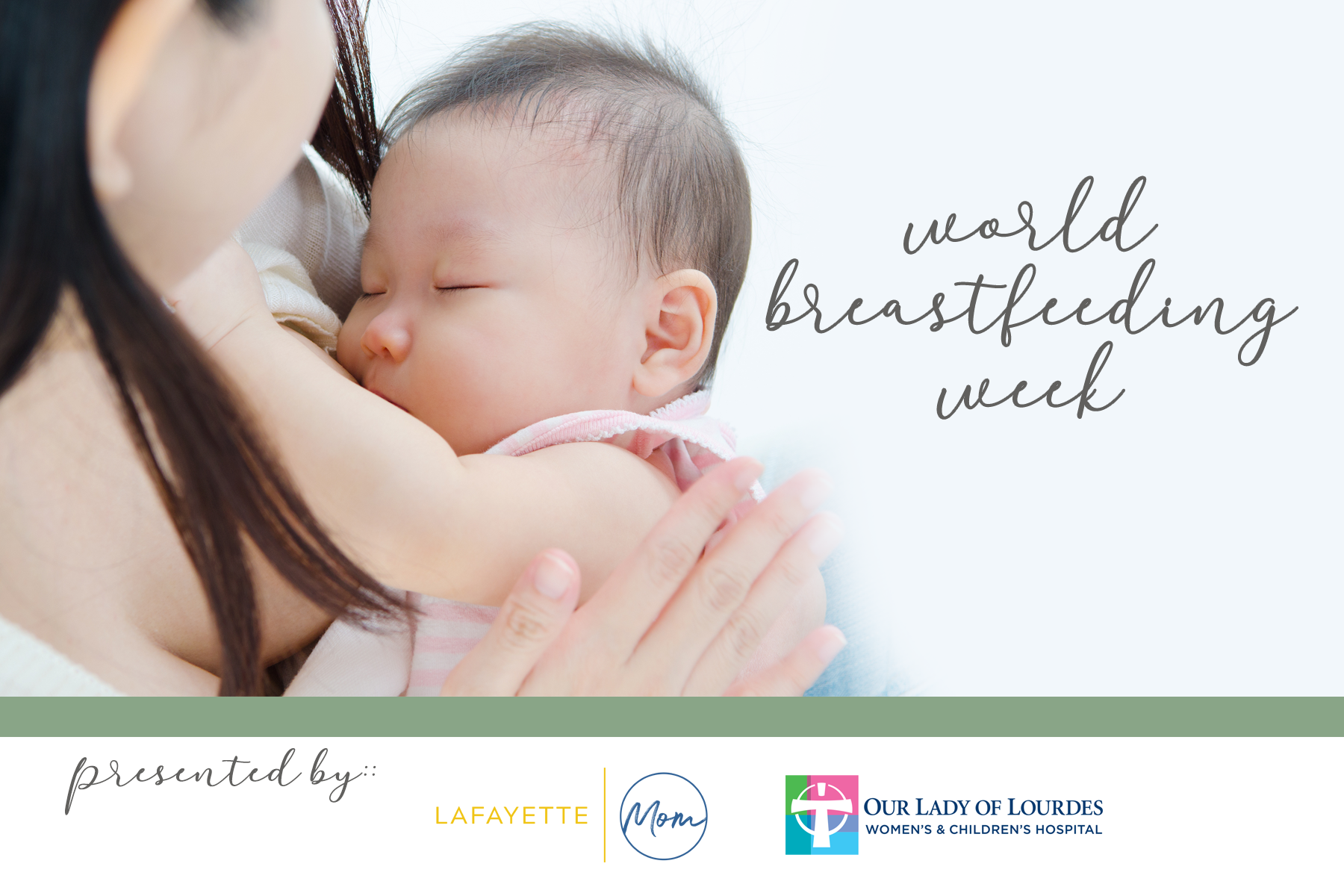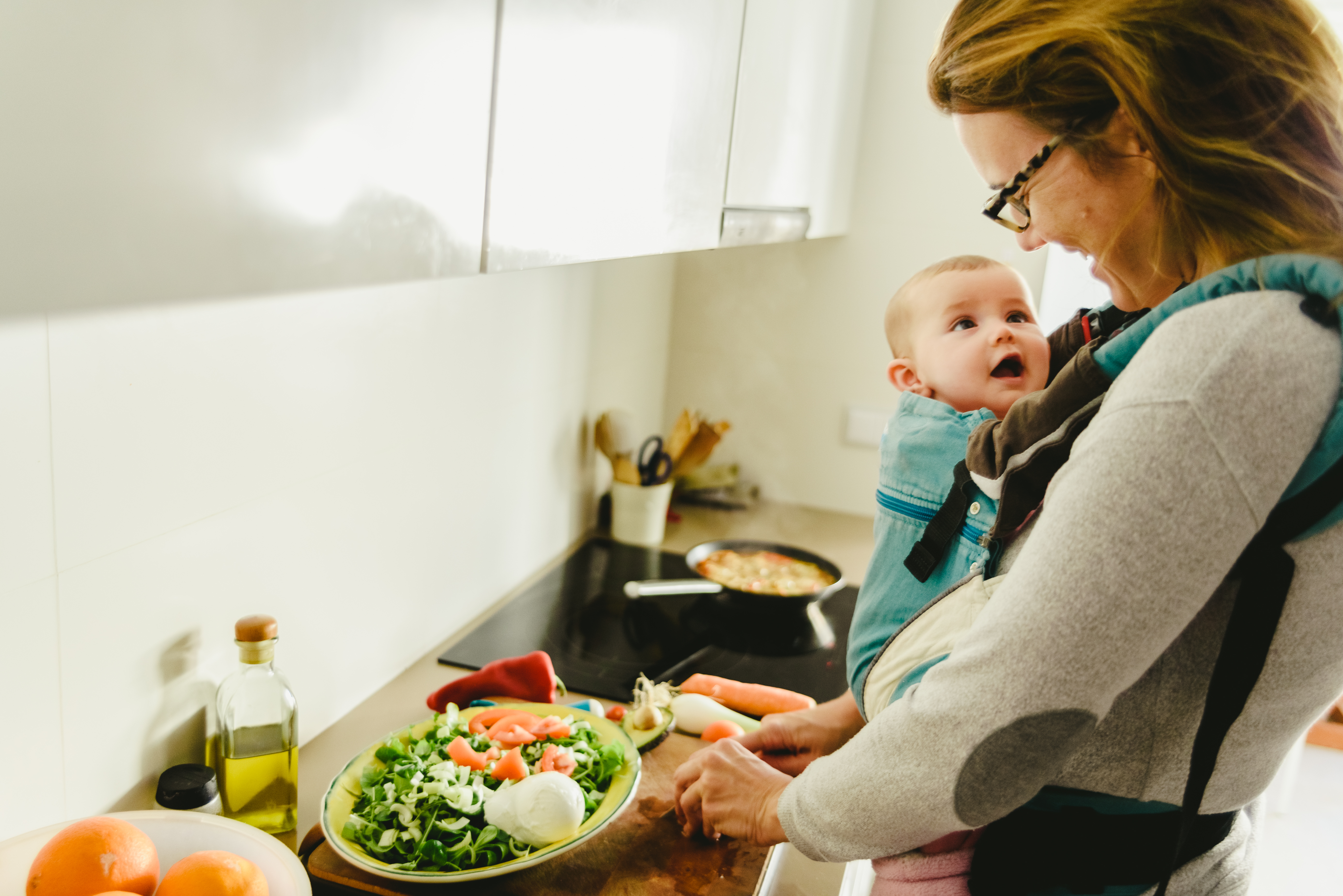Disclosure :: This post is part of a series for World Breastfeeding Week and is sponsored by Our Lady of Lourdes Women’s & Children’s Hospital.
‘Allons Manger!’ :: Spice It Up for Increased Breastfeeding Success
Breastfeeding moms often forgo flavor in their food to ensure their little ones don’t end up with an upset tummy. Truth is, you don’t have to give up garlic, vacate the vanilla or cut the carrots. In fact, experts say flavor is the ticket to a better breastfeeding experience and an increased willingness to try new foods later in life.
The study “Maternal Diet Alters the Sensory Qualities of Human Milk and the Nursling’s Behavior,” which appeared in a 1991 edition of the journal Pediatrics, indicated nursing moms who consumed garlic produced breast milk with a stronger scent. Babies fed the breast milk from a mother who consumed garlic stayed on the breast longer and nursed with more intensity.

What should I eat?
It’s important to eat while pregnant. It’s also important to eat while breastfeeding. Focus on wholesome foods like fruits, vegetables, whole grains, protein and calcium-rich foods. Use the MyPlate guide from the USDA Center for Nutrition Policy and Promotion to gauge how much to eat of each food type understanding you will need an extra 300 to 500 calories per day while breastfeeding.
It’s a good idea to keep a bottle of water handy. Breastfeeding can dehydrate. Also, check with your doctor to see if you should continue taking your prenatal vitamins for added support while breastfeeding.
To steer clear of issues with iodine deficiency, the American Academy of Pediatrics (AAP) recommends all lactating women take a daily supplement that contains 150 micrograms of iodine, use iodized salt in their cooking and eat foods high in iodine, like seafood and dairy products. Vegan moms may want to consult with their doctor about their options.
Can common food allergens affect my breastmilk?
The short answer is yes. Breastfed babies may have an allergic reaction or sensitivity symptoms after mom consumes certain foods or drinks like cow’s milk, soy foods, wheat, corn, oats, eggs, nuts and peanuts, and fish or shellfish. Things to look for:
- Frequent spitting up or vomiting
- Apparent belly pain (lots of gas and/or pulling up the knees in pain)
- Bloody, mucousy stools (poop)
- Hard stools
- Rash and swelling
If you think your baby has had a reaction to food, call your doctor and avoid eating or drinking anything your little one can’t seem to tolerate. If your baby has difficulty with feeding, try to keep a journal of exactly what you eat and drink, along with any reactions your baby had, which could help both you and your doctor pinpoint what the problem food, or foods, might be.
Although such a reaction is extremely rare, if your child has trouble breathing or has swelling of the face, call 911.
Which foods should I avoid?
Some moms may find that if they eat beans, cauliflower or broccoli, their little ones get gassy or fussy. Other babies can tolerate these foods just fine. Some moms say after they eat food with too much pepper, their babies don’t seem to like the taste of their breast milk. Again, other babies may not mind if mom just snacked on jalapeno chips or salsa with a little extra heat.
Still, moms who breastfeed should avoid or limit their intake of fish high in mercury, since high mercury levels can damage the developing nervous system. If you notice a pattern (of fussiness, gassiness, colicky behavior, etc.), try to keep track of exactly what you eat and how your baby reacts to it each time, then talk to your doctor. He or she may suggest not eating the food (such as dairy products, a common allergen) for a few days to see if there’s any change.
What about my glass of wine?
Drinking in moderation — one or two drinks within a 24-hour period — is fine, as long as you wait before feeding your baby.
When you drink alcohol, a small amount of it gets into your breast milk. The amount of alcohol in breast milk depends on the amount of alcohol in the blood. It takes about two hours after having one drink for the alcohol to be metabolized and no longer be a concern for nursing. So do not breast feed or use breastmilk pumped after alcohol consumption.
Drinking too much affects how you care for your baby and may prevent you from responding to your baby’s needs appropriately, since it alters your ability to be alert and think clearly. It’s also a risk factor for SIDS (sudden infant death syndrome).
How about my coffee?
Same rules apply for coffee and alcohol. It’s best to limit the amount of caffeine you consume while breastfeeding. One or two cups of coffee a day are fine, but more than one or two servings of caffeine per day may affect your baby’s mood and/or sleep.
The Lactation Specialists at Our Lady of Lourdes Women’s & Children’s Hospital
— The Lactation Specialists at Our Lady of Lourdes Women’s & Children’s Hospital are internationally board certified through the International Board of Lactation Consultants. Learn more about the hospital’s breastfeeding and other maternity services at www.LourdesRMC.com/expecting.




















